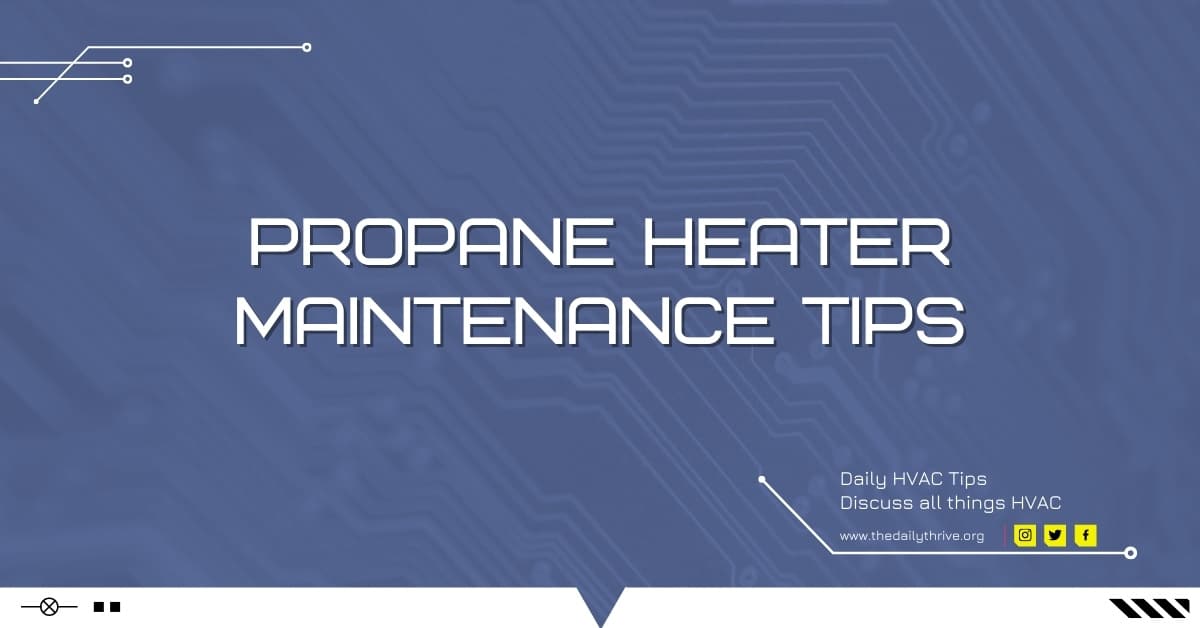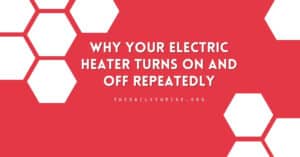If you’ve recently purchased a propane heater or thinking about it, you may be wondering what you need to do to keep them working properly and extend the life of your unit. Propane gas heaters have a wide variety of uses, in the garage, on the patio, at a job site, and even camping outdoor. Economically, earth-friendly and effective, they can warm large spaces and even provide comfort outdoors when the weather turns cold. Here is a basic maintenance guide to keeping your propane heater operating in peak condition.
NOTE: All units come with an owner’s manual. Be sure to read it thoroughly for specific propane heater safety and maintenance guidelines.
Checking for Leaks
Propane, also called Liquefied Petroleum or LP gas, is a byproduct of natural gas processing and crude-oil refining. It’s non-toxic, colorless, and odorless, but manufacturers add an unpleasant scent to it so you can detect a leak should one occur.
Your local propane supplier can provide a scratch and sniff card so that you can learn to recognize the smell. If you smell something that reminds you of rotten eggs, skunks, or dead animals, it means there’s a leak in your unit’s canister, hose, or connector.
IMPORTANT: If you smell gas, do not attempt to light the unit or operate any electrical switches in the vicinity. Evacuate the area and notify your local propane supplier and the fire department immediately.
Regularly checking your propane heater for leaks is the best way to avoid serious injuries or health problems. Follow these simple steps every time a hose or tank is connected to your propane heater.
- The propane tank must be fitted with a supply cylinder that is compatible with the connector that comes with your heater.
- Check your manual for specifications.
- Make sure the connection to your propane heating unit is tightly fitted.
- Never use a match to check for leaks! The results could be explosive.
- Visually inspect the hose assembly for signs of wear or abrasion. If you detect any damage, contact a supplier to purchase manufacturer-specified replacement parts.
Next, check for faulty connections and leaks:
- Mix a 50/50 solution of liquid dishwashing detergent and water.
- Slowly open the supply valve on the propane tank.
- With a rag, sponge, or spray bottle, apply the soap solution to the connectors and joints between the propane tank and the heater.
- If there is a leak, the mixture will produce bubbles. Generally, small bubbles mean a small leak, and large bubbles mean a large leak.
If you identify a leak, close the propane tank’s valve. It might be possible to correct the leak by tightening the connectors or screws. Be careful of over-tightening, however, as you could damage the connector. If you’re not sure, the best thing to do is contact your propane supplier to arrange a repair or replacement.
Checking the Burner
When using propane heating, it’s a good idea to regularly inspect the pilot flame and burner flame. The pilot flame should be blue. If it burns with a yellow flame or an irregular flame, or you can see significant amounts of soot, then it probably needs cleaning.
- Allow the heater to cool thoroughly before attempting maintenance.
- Disconnect the propane tank from the heater.
- Some units have electrical components. If yours does, make sure it is unplugged from the electric socket.
- Inspect the burner and valves for debris, soot, or potential clogs of bugs and insects.
- Use a vacuum, pressurized air, or a soft bristle brush to clean the exterior of the pilot and burner. Never use a toothpick, needle, or other sharp objects to clean the pilot fixtures, as they could break off and cause clogs.
- If necessary, use a flashlight to inspect the burner inlet to check for blockages. Use a vacuum to clear the primary air openings.
Regular Cleaning
Keeping propane heaters clean is the easiest way to prevent problems. It’s recommended to clean the exterior every month, being especially careful to clear the air vents. The inside of these heaters should be thoroughly cleaned at the beginning of each winter season or whenever it has gone unused for long periods of time.
Here is how to clean a propane heater:
- Make sure the heater is turned off. For extra safety, disconnect it from the propane tank.
- With a vacuum cleaner, remove accumulated dust and debris from the outside of the propane heater. Make sure you use the vacuum’s hose attachment to reach inside the vent holes and grids.
- Small paintbrushes or even toothbrushes can be used to remove dust and particles from tighter spaces. Use compressed air to remove dust and debris from the igniter and flame areas.
- Wipe the interior with a damp cloth and let dry.
- Be careful not to bump any interior parts while cleaning inside the propane heater, or you might knock pieces out of alignment.
Safety Warnings
Carbon monoxide is the odorless byproduct of burning propane and can be toxic to humans. Before using your heater indoors, make sure you have chosen a unit that is approved for indoor use and that adequate ventilation is provided.
Even when used under proper safety guidelines, it’s important to regularly maintain your propane heater. If the pilot or burner has an irregular flame, it might indicate that the gas is not burning completely, a situation that can lead to the creation of carbon monoxide.
Symptoms of carbon monoxide poisoning include headaches, dizziness, loss of muscular control, vomiting, and watering of the eyes. If you experience any of these symptoms while using your propane heater, turn off the unit, open a window and remove yourself from the location immediately.
Propane heaters are not difficult to maintain properly. Ensuring they are clean and everything is functioning as it should be, it will operate safely and efficiently. However, if you should determine that maintenance or repairs beyond those described in this article are needed, it is recommended that you contact a certified HVAC technician.






